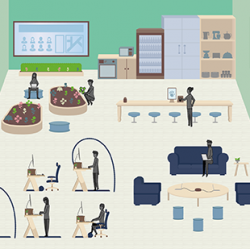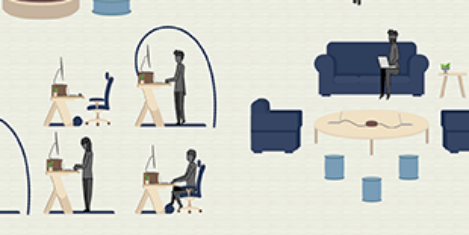January 25, 2017
The office of the future should be defined by the age of its inhabitants. But not in the way you think 0
 The office of the future is most commonly seen as the habitat of Millennials. But there are all sorts of flaws in this assumption. Apart from the casual stereotyping of a diverse demographic of people, the most glaring is the fact that the workforce is ageing rather than getting younger, and that most offices must now meet the needs of a wider range of age groups than at any time in their history. A new report from Totaljobs seeks to redress the balance in this regard. It suggests that some of the key features of the office of the future will not be slides and ping pong tables but flexible working areas, quiet spaces, spas and private medical rooms. The study claims that the fixation with Millennials means that a large number of older workers now feel that the design of offices does not meet their needs.
The office of the future is most commonly seen as the habitat of Millennials. But there are all sorts of flaws in this assumption. Apart from the casual stereotyping of a diverse demographic of people, the most glaring is the fact that the workforce is ageing rather than getting younger, and that most offices must now meet the needs of a wider range of age groups than at any time in their history. A new report from Totaljobs seeks to redress the balance in this regard. It suggests that some of the key features of the office of the future will not be slides and ping pong tables but flexible working areas, quiet spaces, spas and private medical rooms. The study claims that the fixation with Millennials means that a large number of older workers now feel that the design of offices does not meet their needs.





































January 20, 2017
The facts about sit stand work are already lost in the stream of narrative 0
by Mark Eltringham • Comment, Knowledge, Wellbeing, Workplace design
(more…)